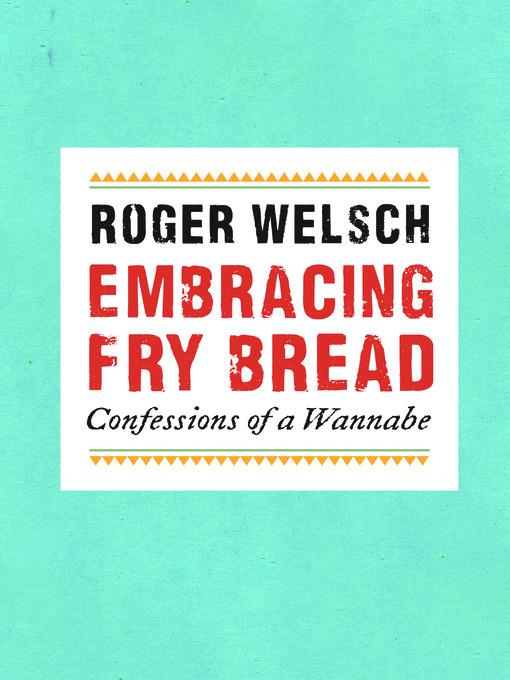
Embracing Fry Bread
Confessions of a Wannabe
- اطلاعات
- نقد و بررسی
- دیدگاه کاربران
نقد و بررسی

October 8, 2012
In a memoir filled with compassion and humor, Welsch (Touching the Fire) writes neither as an anthropologist nor an activist, but simply as a non-Indian, self-described “wannabe” grateful at having had the chance, more by fate than choice, to participate in the cultures of the Northern Plains’ indigenous tribes. Thankfully lacking in rosily New Age–tinted awe toward Indian wisdom, Welsch relates a deepening, near lifelong involvement with these communities, first as a political ally, then as a friend, and finally as an accepted and beloved family member. While dispensing a modest portion of advice to fellow “wannabes,” he explores questions of cultural ownership and lifestyle through the prism of personal experiences like playing the traditional Omaha Indian handgame or returning his land in Nebraska to the Pawnee Nation as a sacred site and reburial ground. Nonetheless, Welsch’s background as a University of Nebraska–Lincoln anthropology professor emerges as he lucidly explains such concepts as the esoteric-exoteric factor: the dividing line for acceptable, understandable expression within and without minority communities. Welsch’s natural warmth and skill as a storyteller, and his obvious respect for the individuals he encounters, come through clearly in his writing, and it’s easy to see why so many people, from so many backgrounds, might be honored to call him “friend.”

December 1, 2012
A Nebraska-born folklorist shares how his life and perspectives have changed as a result of his 60-year-long relationship with Native American communities. Welsch (My Nebraska: The Good, the Bad, and the Husker, 2011, etc.) resides with his wife in Dannebrog, Neb., (pop. 347) on land he has returned to the Pawnees--and on which he continues to live "by their grace." Through personal interest, the author developed lifelong friendships with members of the Omaha and Pawnee nations, having been officially accepted as a member of both tribes. Welsch offers a disclaimer early on that his book is a memoir of his own experience of being accepted into another culture--a "casual, straggling conversation," not a scholarly study, nor an attempt to speak on American Indians' behalf. This approach makes the book authentic and engaging, if repetitious, and frees the author to toss in as much snark as he pleases. Welsch doesn't suffer fools (most of mainstream white America, especially Nebraska football fans) gladly and doles out smug exaggerations where a touch of perceptive wit would be more effective and less alienating. Nonetheless, he writes ably and knowledgeably about a variety of topics, offering readers plenty to learn and enjoy. Welsch praises much of Indian culture, including civil debates, eloquent speechmaking, rich oral history, gift-giving practices, patriotism, community and lack of conflict among faiths. He also leverages his unique position as a full member of both cultures to humorously highlight the differences between Native and white cultures, such as "Indian Time," and to deconstruct stereotypes in white and Native relations. Welsch's gratitude toward the Omahas and Pawnees is real, his outrage at their painful history is justified, and his story is proof that Native American culture is still alive and complex.
COPYRIGHT(2012) Kirkus Reviews, ALL RIGHTS RESERVED.

November 15, 2012
Welsch, a prolific author and anthropology professor, here offers an honest, self-effacing memoir of his years spent as a mainstream, middle-class, educated white man who was also a wannabe Native American. To be a wannabe, he says, is a way of better understanding culture in general, and one's own culture in particular. Beginning in 1964when he ineptly joined in his first Omaha handgame, a complicated game with a myriad of ancient, unwritten rulesWelsch gradually became more and more involved in the Omaha and Pawnee communities surrounding his family home in Nebraska. Eventually, he was formally adopted by the Omaha Nation, and later his involvement in Pawnee repatriation efforts lead to the deeding of his and his wife's pitiful 60 acres of land to a band of Pawnees so they could rebury their repatriated remains on that sacred ground, which was part of their original homeland. Though an anthropology scholar, Welsch is never pedantic or preachy. Instead, this is a heartfelt and very personal story, rich in wry and self-deprecating humor.(Reprinted with permission of Booklist, copyright 2012, American Library Association.)




دیدگاه کاربران